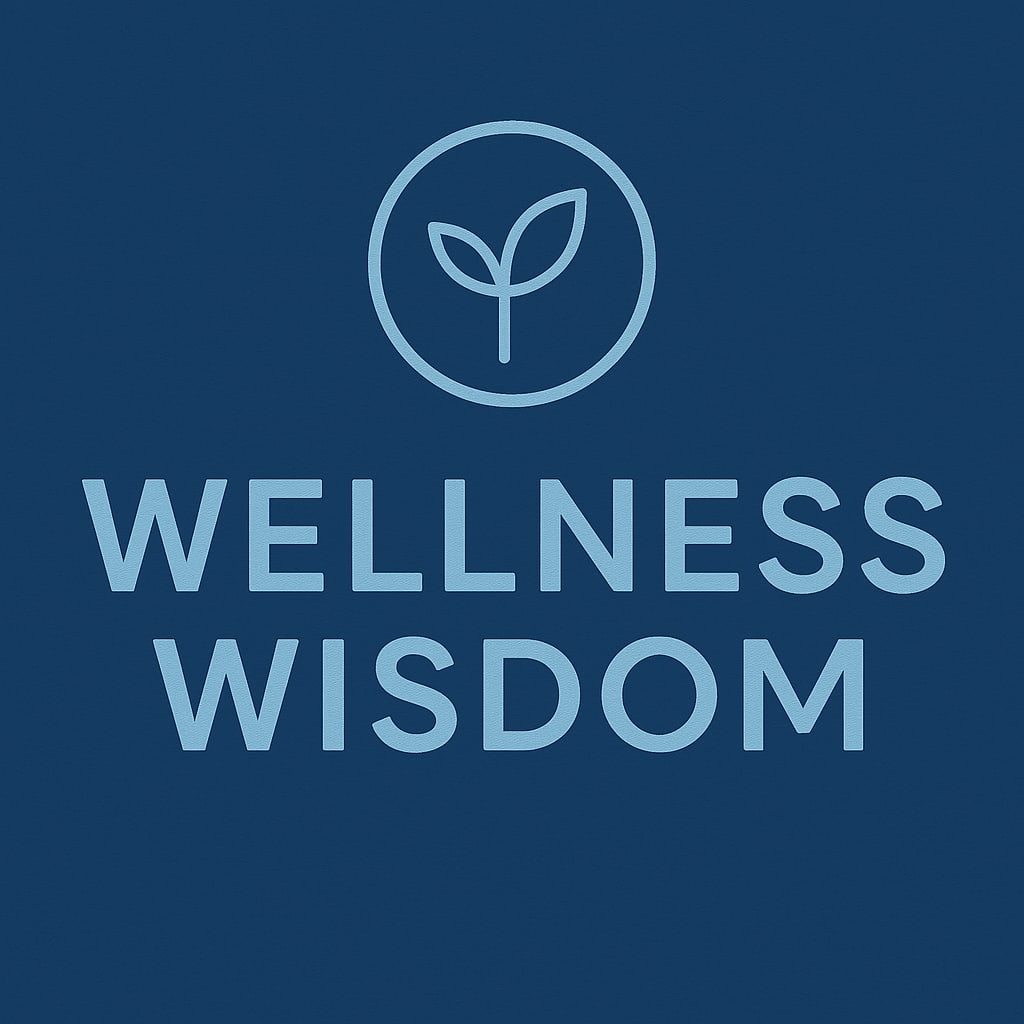
Welcome to Wellness Wisdom—Your Weekly Guide to Thriving After 50
Each week, you’ll find simple, effective health tips, inspiring insights, and practical strategies designed to help you feel your best—physically, mentally, and emotionally.
No matter where you are on your wellness journey, we’re here to support, encourage, and walk alongside you every step of the way.
Let’s keep growing stronger, healthier, and more energized—together.
Wellness Wisdom Weekly - Your Guide to Living Well After 50
Wellness Wisdom Weekly - Your Guide to Living Well After 50
July 2025 Issue 14
July 2025 Issue 14
I wish to have future newsletters sent directly to my inbox when they become available.
Your privacy is important to us. When you share your email, we use it solely to send you helpful wellness content and updates — you can unsubscribe anytime. We will never sell or share your information with anyone, ever.
Most people don’t realize they start losing muscle mass as early as age 30—up to 8% per decade. By the time we hit 50, this decline can accelerate fast unless we take action. In this issue, we’ll show you why protein matters more than ever—and how simple changes can help you stay strong, energized, and independent.
Welcome to Issue 14 of Wellness Wisdom!
The Power of
Protein After 50
The Power of
Protein After 50
Introduction
Why Muscle Mass Declines with Age
How Much Protein Do Older Adults Really Need?
Best Protein Sources: Animal and Plant Based Options
How to Space Protein Throughout the Day
Protein Timing Around Workouts
Supplementing with Protein: Yay or Nay?
The Link Between Protein and Aging Well
Final Thought
Introduction
Introduction
As we age, staying healthy isn’t just about watching our weight or keeping our heart in check—it’s also about maintaining strength, balance, and mobility. And at the core of all three? Muscle mass. That’s where protein comes in.
After 50, our nutritional needs begin to shift, and protein becomes one of the most essential tools in our longevity toolbox. Whether you’re trying to stay active, avoid injury, or simply age with grace, understanding your protein needs can be a game changer.
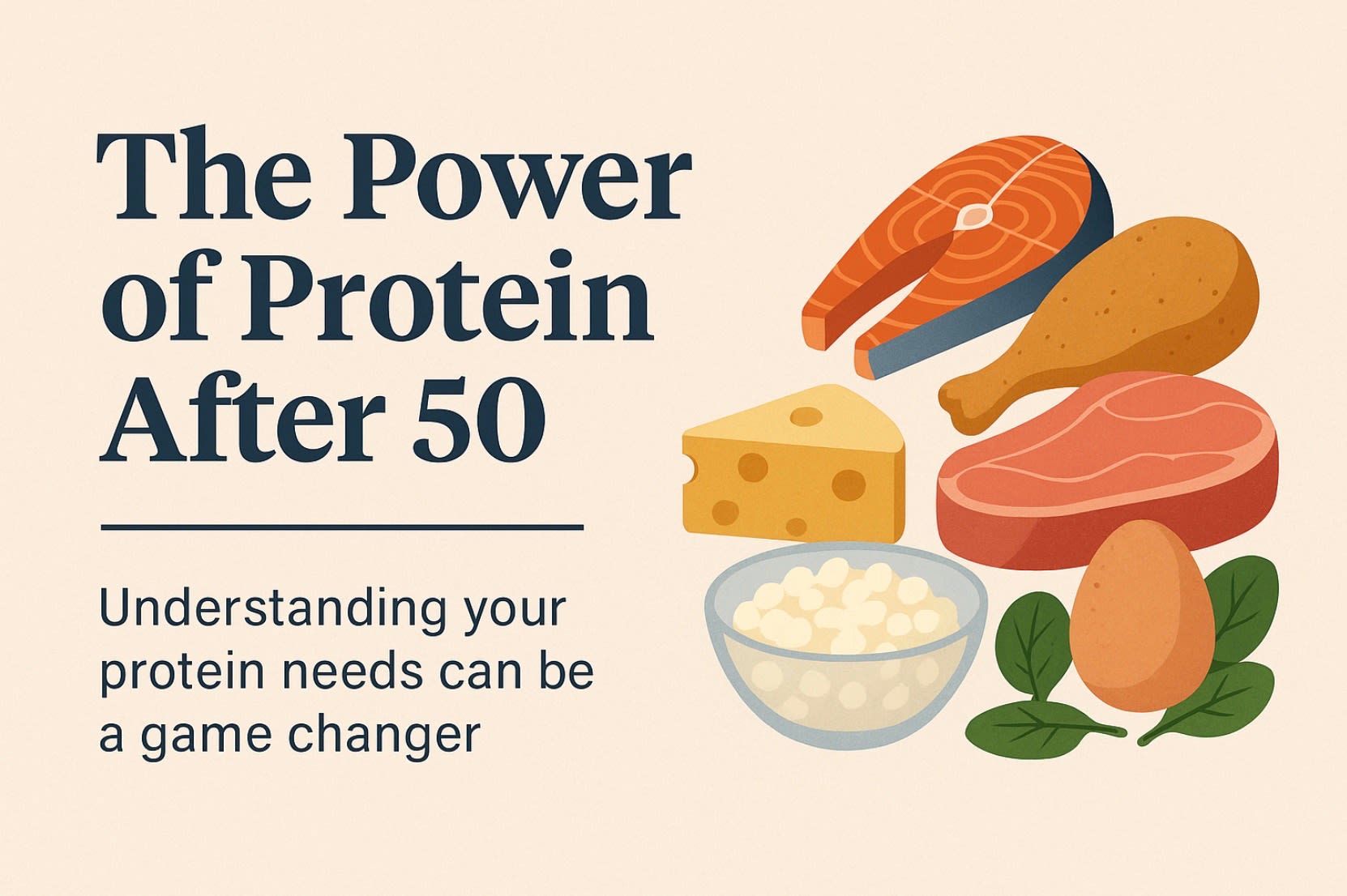
Why Muscle Mass
Declines with Age
Why Muscle Mass
Declines with Age
After the age of 30, most people begin to lose muscle mass at a rate of 3–8% per decade—a process known as sarcopenia. By the time we reach 50, this natural decline can begin to accelerate unless we take proactive steps.
This muscle loss doesn’t just affect how we look—it impacts our strength, balance, mobility, and even metabolism. Less muscle means a slower metabolism, reduced energy, and a higher risk of falls or frailty.
Fortunately, increasing protein intake, paired with strength training, can help slow or even reverse some of these effects.
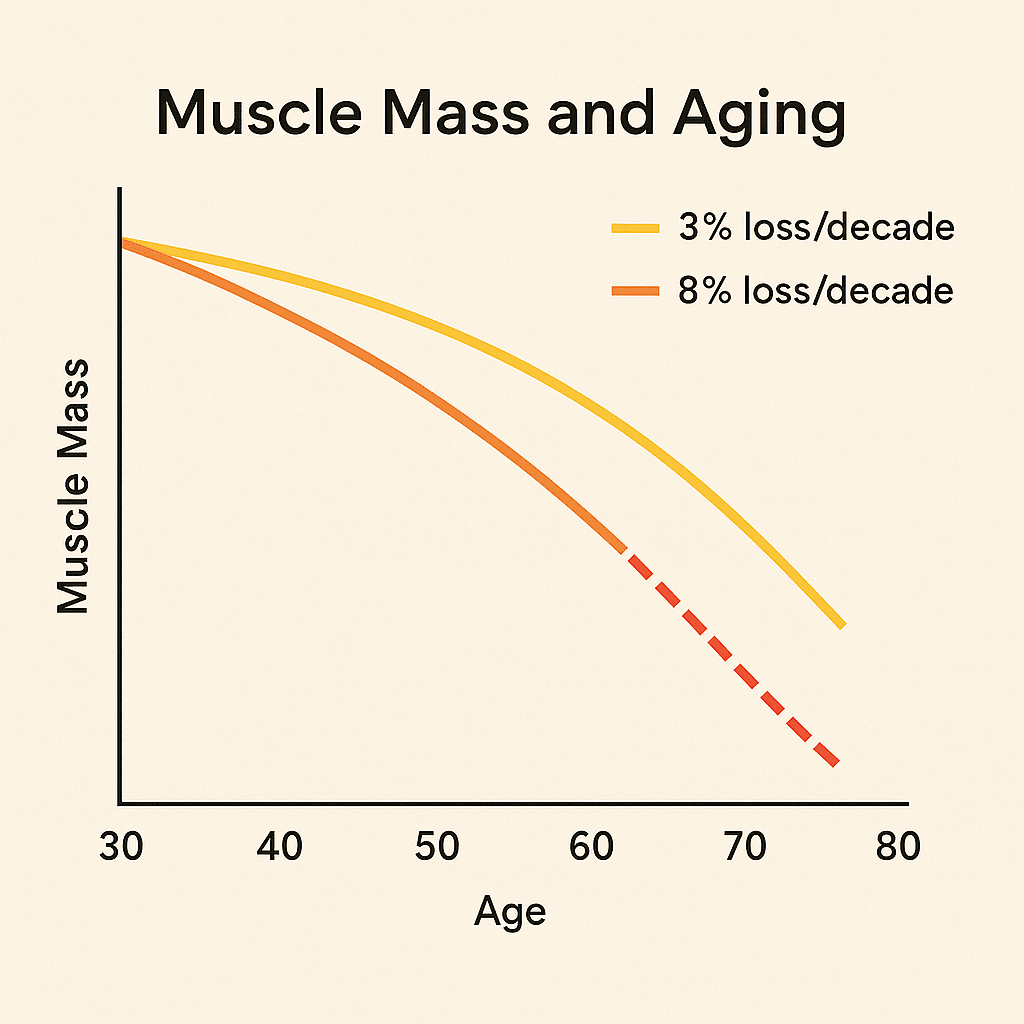
How Much Protein Do
Older Adults Really Need?
How Much Protein Do
Older Adults Really Need?
While the general recommended dietary allowance (RDA) for protein is 0.8 grams per kilogram of body weight, many experts now believe this is too low for older adults.
For those over 50, the optimal range is more likely between 1.0 and 1.2 grams per kilogram of body weight per day. For someone who weighs 150 pounds (around 68 kg), that’s approximately 68–82 grams of protein daily.
If you’re actively exercising, recovering from an injury, or dealing with chronic illness, your needs may be even higher.
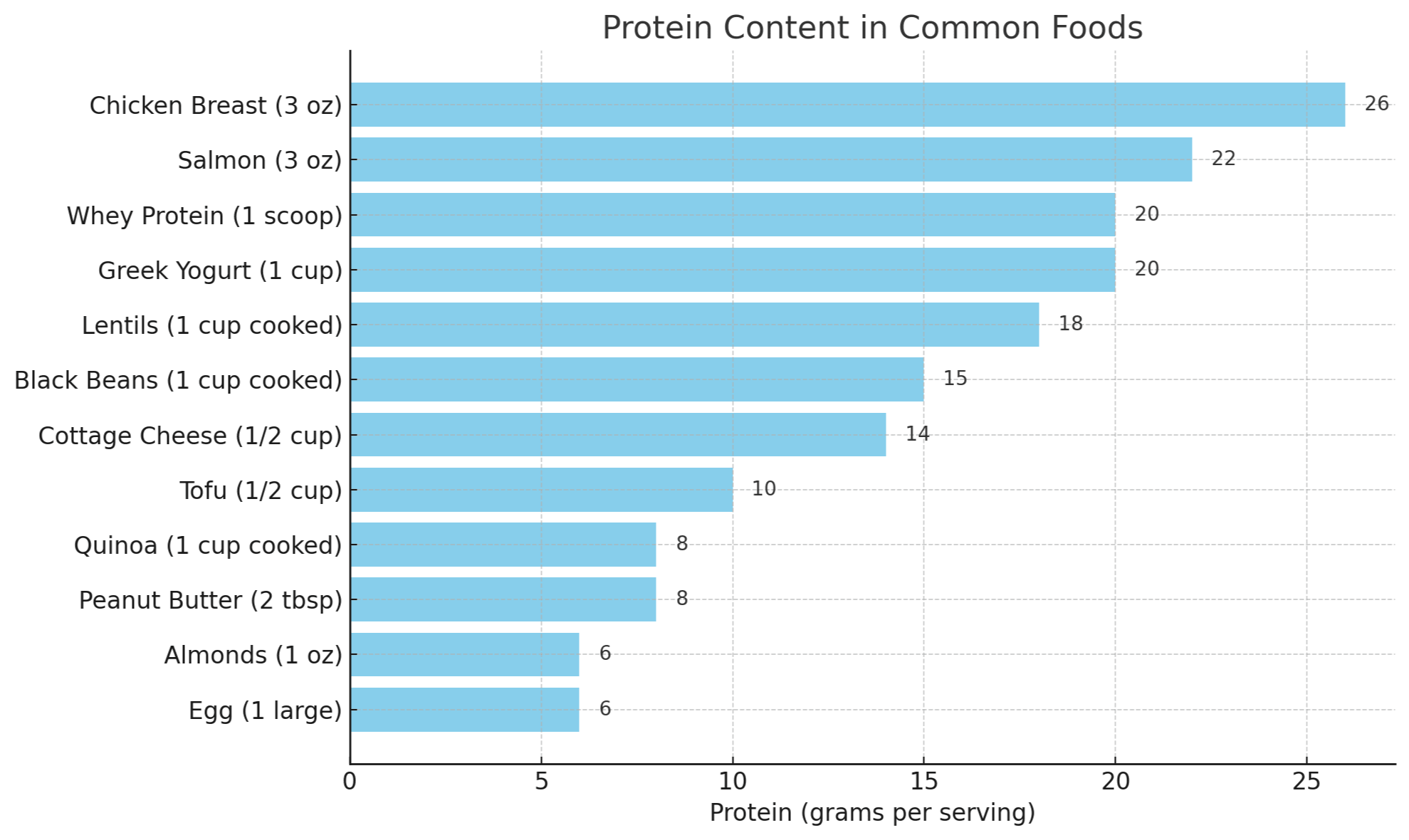
Best Protein Sources: Animal and Plant-Based Options
Best Protein Sources: Animal and Plant-Based Options
Animal-based proteins like chicken, fish, eggs, Greek yogurt, turkey, lean beef, and cottage cheese offer all nine essential amino acids your body can’t produce on its own.
These complete proteins are especially effective at triggering muscle protein synthesis.
But don’t overlook plant-based powerhouses: lentils, chickpeas, quinoa, tofu, tempeh, chia seeds, nuts, and whole grains.
Combining different plant-based sources throughout the day can also create a complete amino acid profile. Diversifying your protein sources also helps support gut health, reduce inflammation, and introduce more fiber into your diet.
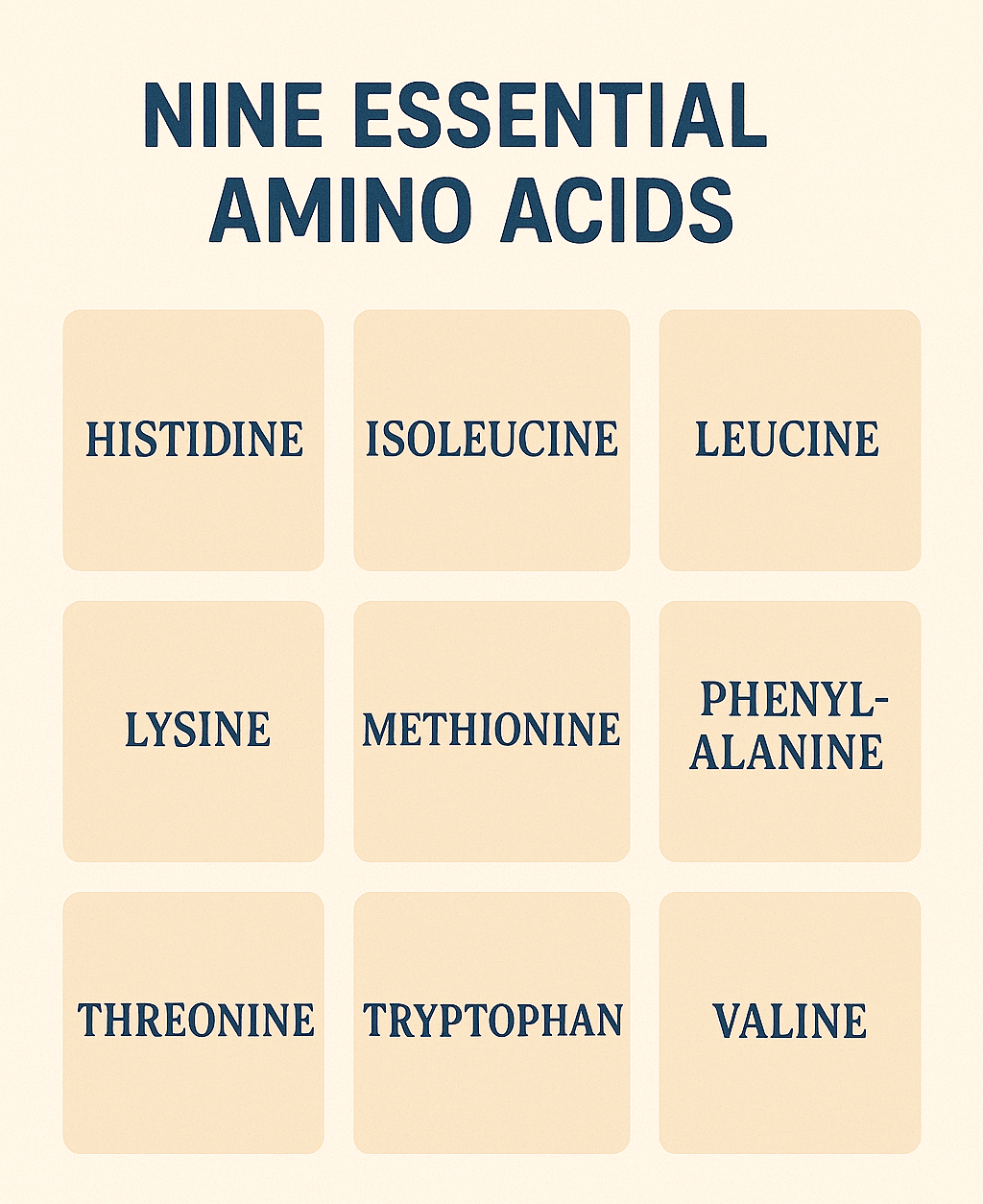
How to Space Protein
Throughout the Day
How to Space Protein
Throughout the Day
Many people load up on protein at dinner, but spacing your intake throughout the day is more effective for muscle maintenance and repair.
Aim to get 20–30 grams of protein at each major meal—breakfast, lunch, and dinner. A high-protein breakfast (such as eggs with Greek yogurt or a protein smoothie) can kick-start your metabolism and help curb cravings.
Snacks like a handful of almonds, cottage cheese, or protein bars can help you hit your daily goals without overloading any single meal.
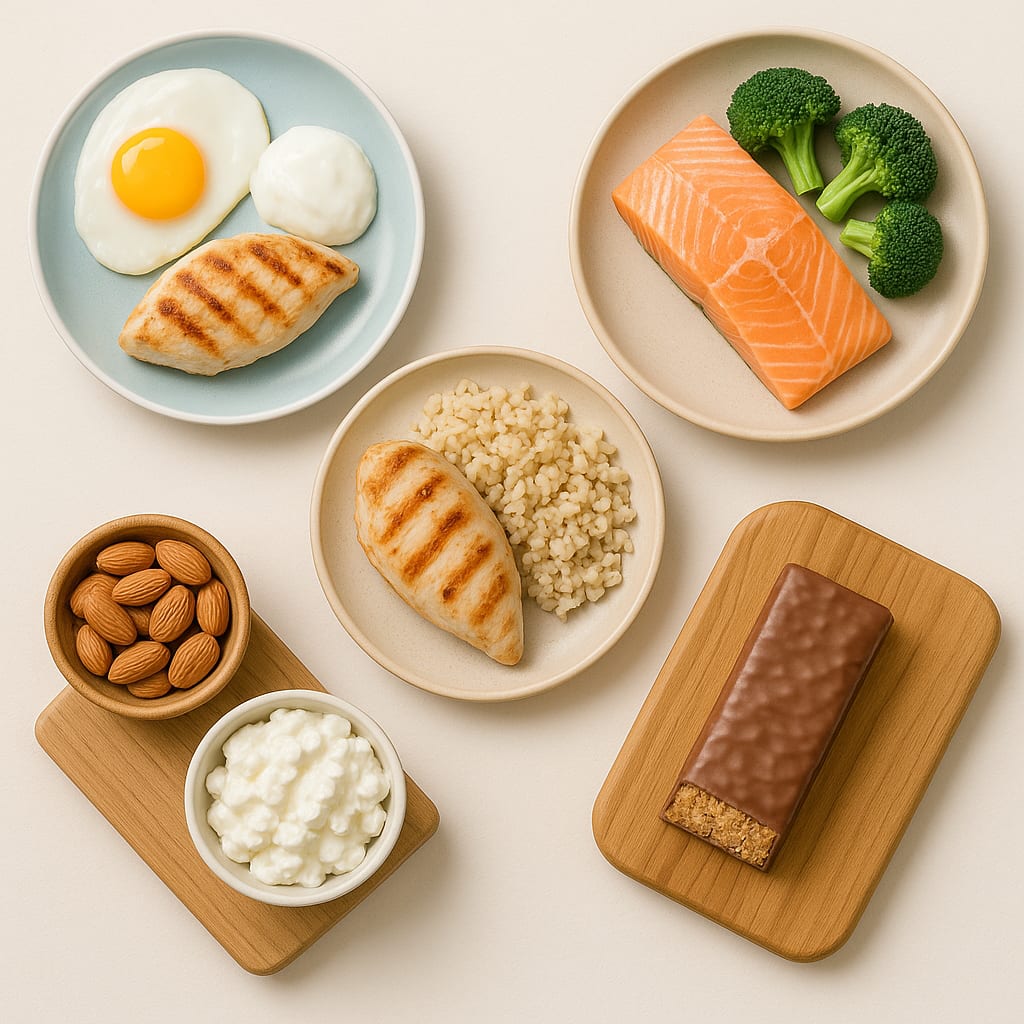
Protein Timing
Around Workouts
Protein Timing
Around Workouts
If you’re staying active—and you should be—it’s worth considering the timing of your protein intake. Eating a protein-rich meal or shake within an hour after exercise helps repair muscle fibers and build strength. Pair it with some carbohydrates (like fruit or whole grains) to restore energy levels.
Even if you’re just doing moderate resistance training or walking regularly, post-exercise nutrition still plays a major role in recovery and long-term muscle health.
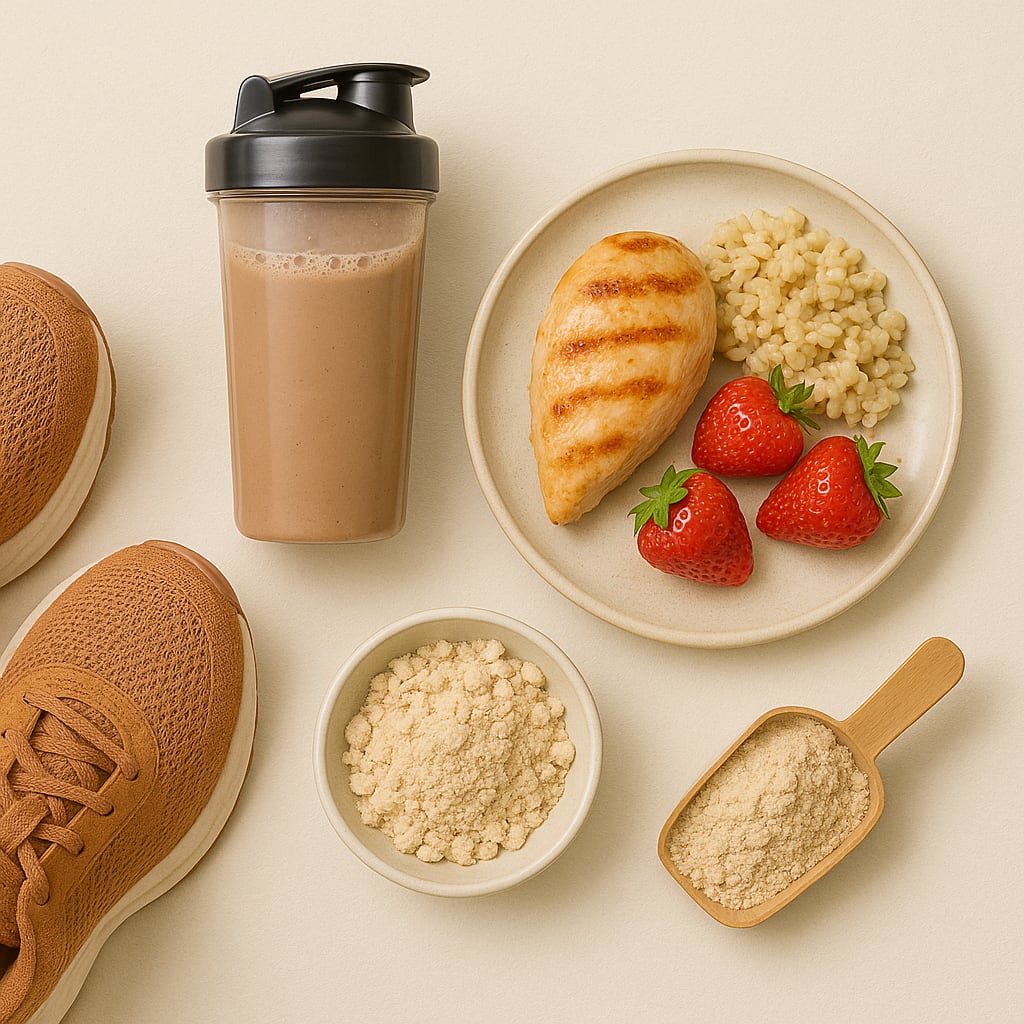
Supplementing with Protein:
Yay or Nay?
Supplementing with Protein:
Yay or Nay?
For those who struggle to hit their protein goals with food alone, protein supplements can be a convenient addition. Look for whey, casein, or plant-based protein powders with minimal added sugars or artificial ingredients.
Whey protein, in particular, is absorbed quickly and contains a high concentration of leucine, a key amino acid in muscle building.
However, supplements should complement—not replace—real food. If you’re unsure about your needs, consider speaking with a registered dietitian or your healthcare provider.
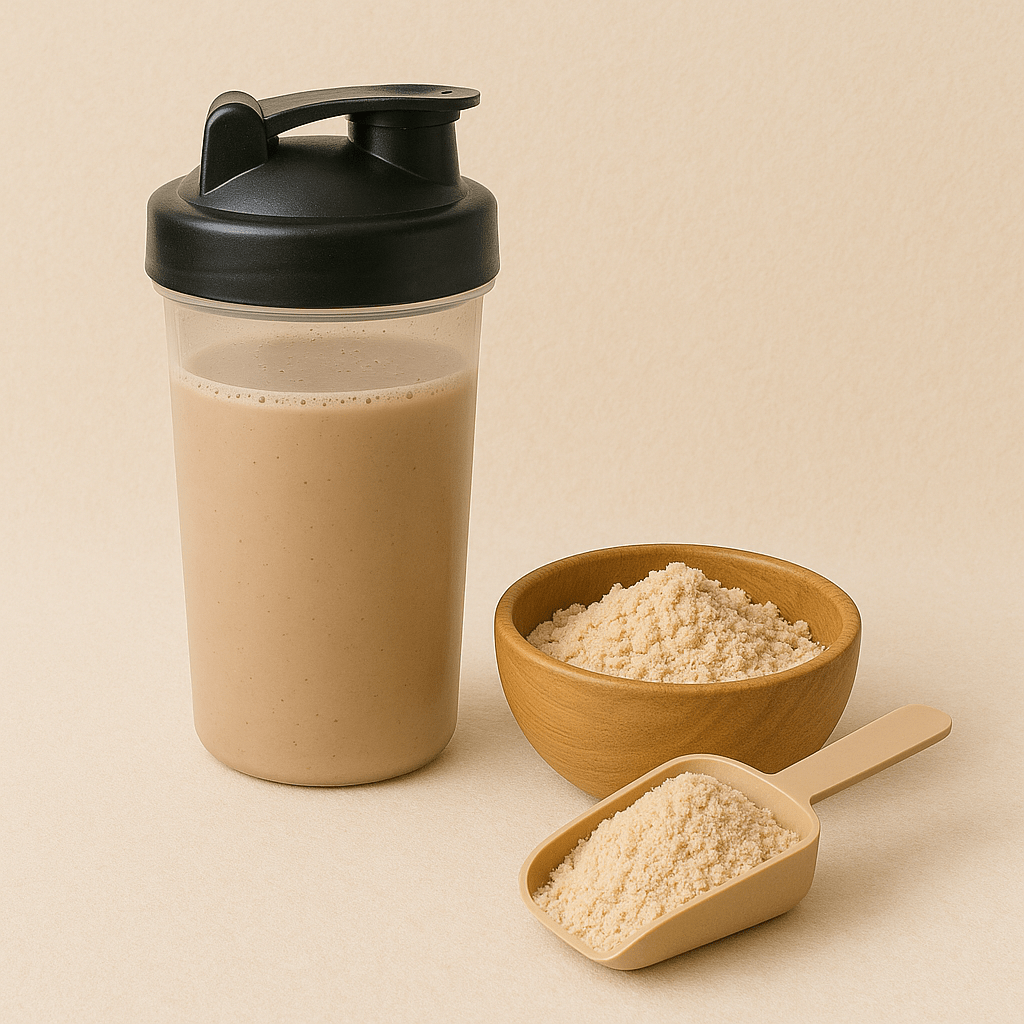
The Link Between Protein
and Aging Well
The Link Between Protein
and Aging Well
Beyond muscle, protein is crucial for bone health, immune function, hormone regulation, and skin elasticity. Low protein intake is associated with greater risk of falls, slower wound healing, and increased hospital stays in older adults.
By making protein a cornerstone of your diet after 50, you’re investing not just in how you look or move—but in your independence, confidence, and quality of life as you age.
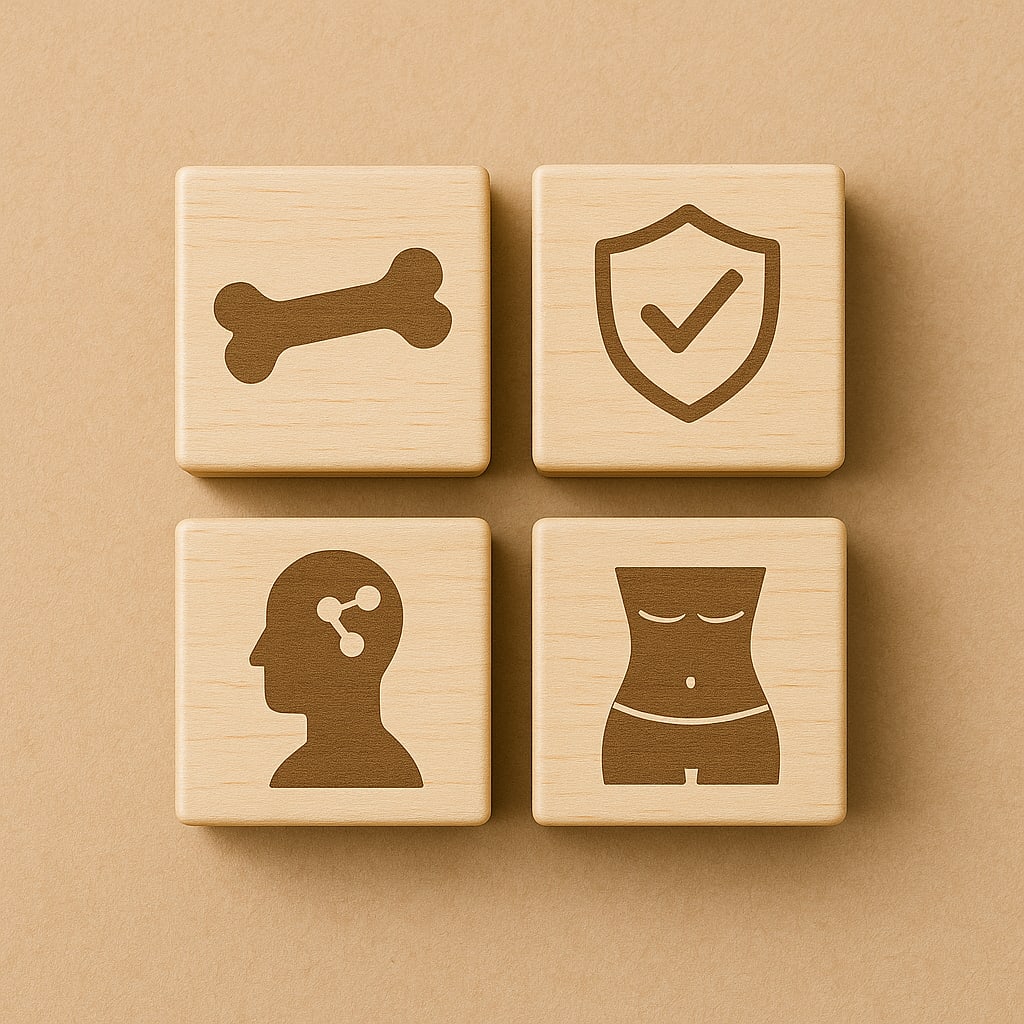
Final Thought
Final Thought
Aging is inevitable, but decline doesn’t have to be. One of the most powerful truths we often overlook is that your daily choices have the power to shape your future vitality. Protein, while often talked about in terms of muscle and fitness, plays a far more profound role—especially after the age of 50.
By now, you’ve seen how sarcopenia, the gradual loss of muscle mass, begins as early as age 30 and accelerates if we don’t actively counter it. But here’s the good news: science consistently shows that increasing your protein intake and combining it with strength-building movement can slow, halt, and in many cases even reverse these age-related changes. And it’s not just about bulking up—this is about being able to carry your groceries, climb stairs, play with your grandkids, and live independently for years to come.
In many ways, protein is a foundational nutrient for aging well. It supports muscle repair and regeneration, fortifies bone density, regulates hormones, strengthens the immune system, and even helps with clearer thinking and better sleep. Yet far too many adults over 50 fall short—often because old nutritional guidelines were based on younger adults and outdated research.
What we need now is a mindset shift.
Rather than seeing meals as a way to simply feel full, start viewing every bite as an opportunity to fuel resilience. Instead of letting old habits guide your plate, build new ones with intention. Include high-quality sources of protein with each meal—eggs, Greek yogurt, fish, lean meats, legumes, tofu, or a protein smoothie. Make smart, satisfying snacks like cottage cheese, almonds, or a protein bar part of your routine. And if needed, consider clean, low-sugar supplements to help you reach your daily targets.
Just as important as what you eat is when you eat. Spreading your protein intake throughout the day helps keep your body nourished and better able to repair itself after workouts or stress. This strategy supports a more consistent metabolism, reduces muscle breakdown, and boosts your energy from sunup to sundown.
Think of this journey not as a short-term fix, but a long-term investment in the lifestyle you want to maintain. Because strength isn’t just physical—it’s mental and emotional too. When your body feels strong, you move more, do more, and feel more confident in yourself and your capabilities. And that ripple effect touches every area of your life—from your relationships to your independence and your daily joy.
So as you finish this newsletter, ask yourself: What small change can I make today to get stronger tomorrow?
Your future self will thank you for the protein you add to your plate, the walk you take after dinner, the squat you practice beside your bed, and the commitment you make to care for your body—not just to live longer, but to live better.
Here’s to strength, vitality, and a future built on intention—one protein-packed choice at a time.
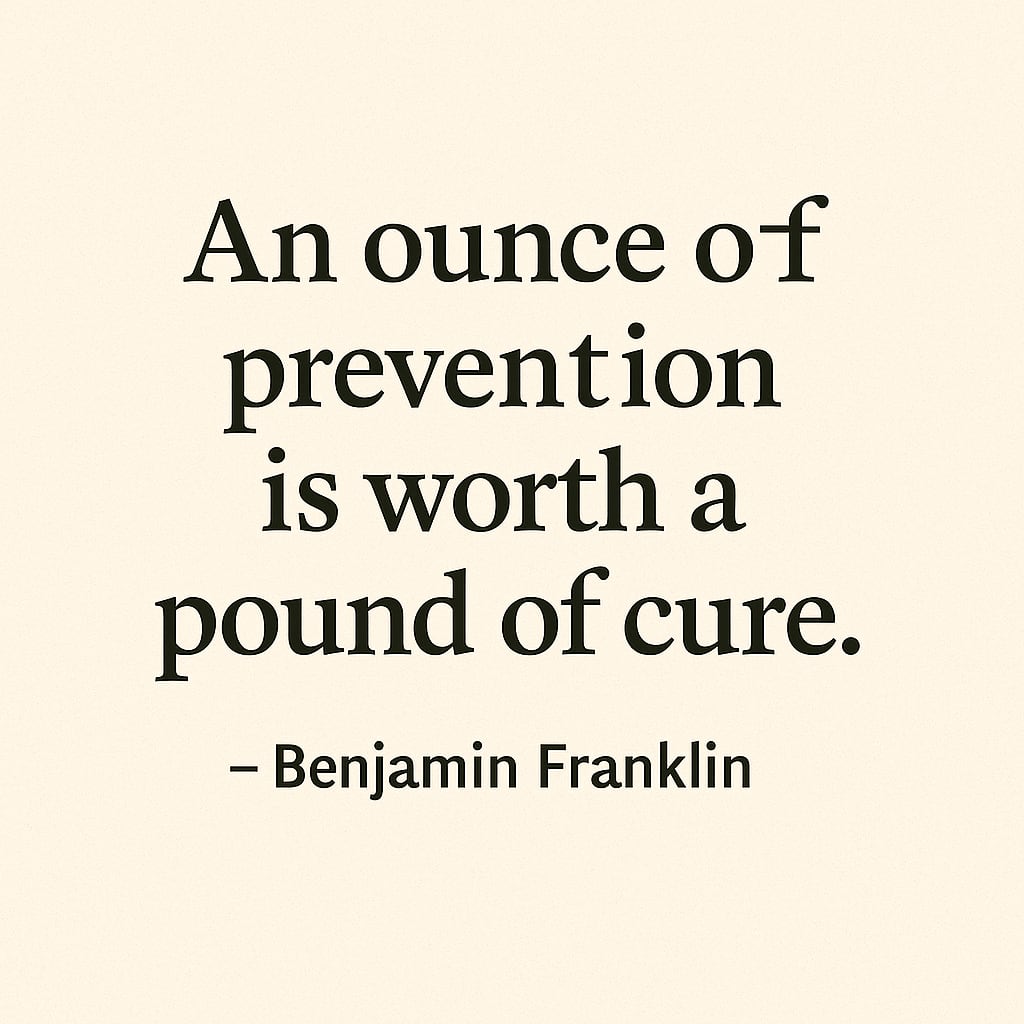
Don't forget to visit West Egg Living on Facebook!!!
Don't forget to visit West Egg Living on Facebook!!!
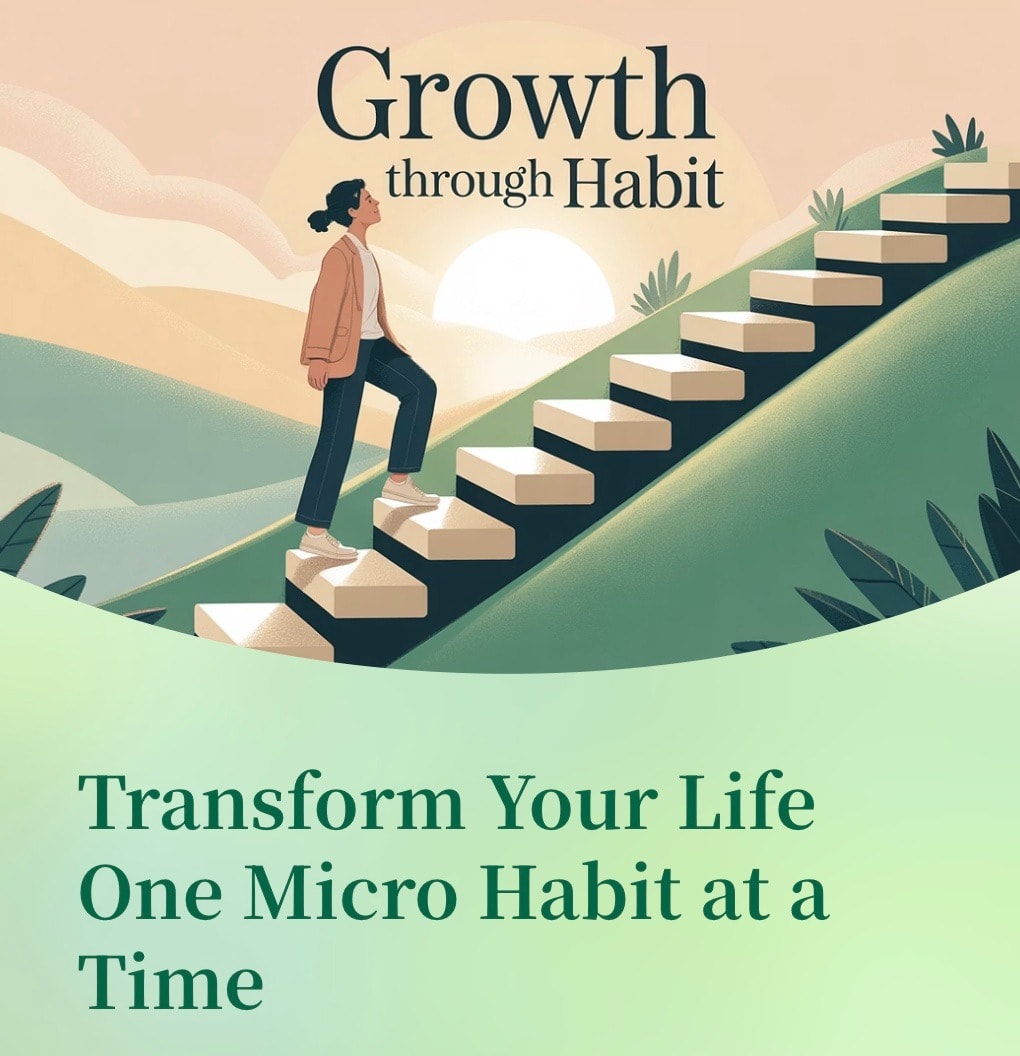
Bonus Material
Bonus Material
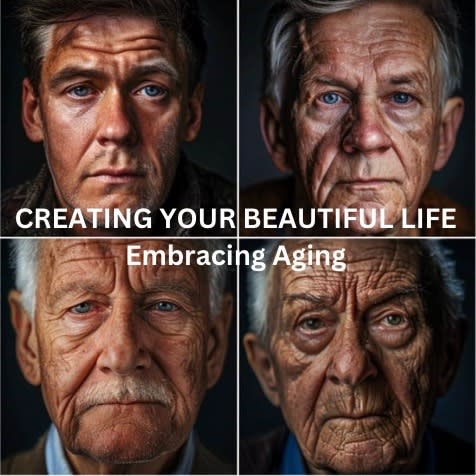
Embracing Aging - Aging is an inevitable part of life that brings with it a host of physical and mental changes. As we grow older, our bodies and minds undergo transformations that can impact our ability to do things we once took for granted.
This journey can be challenging, but understanding these changes and finding ways to adapt can help us lead longer, healthier lives.
If you’re new to West Egg Wellness 50+, be sure to click on the Getting Started icon. There, you’ll find free downloadable materials designed to help you take those first steps toward better health and nutrition. From simple meal planning guides to beginner-friendly fitness tips, these resources are created with you in mind. It’s a great way to jumpstart your wellness journey—don’t miss it!
If you have any questions, thoughts, or comments you'd like to share, I'm always happy to hear from you - just send a message to info@westeggliving.com
I'm here to help!
Thank you for joining us for this edition of Wellness Wisdom! We hope you found inspiration, encouragement, and a few practical takeaways to support your wellness journey. Remember, lasting health isn’t about perfection — it’s about small, consistent steps.
We’re honored to walk alongside you as you create a stronger, more vibrant life after 50. Stay tuned for next week’s issue packed with more tips, insights, and motivation. Until then, be kind to yourself and keep moving forward — you’ve got this!
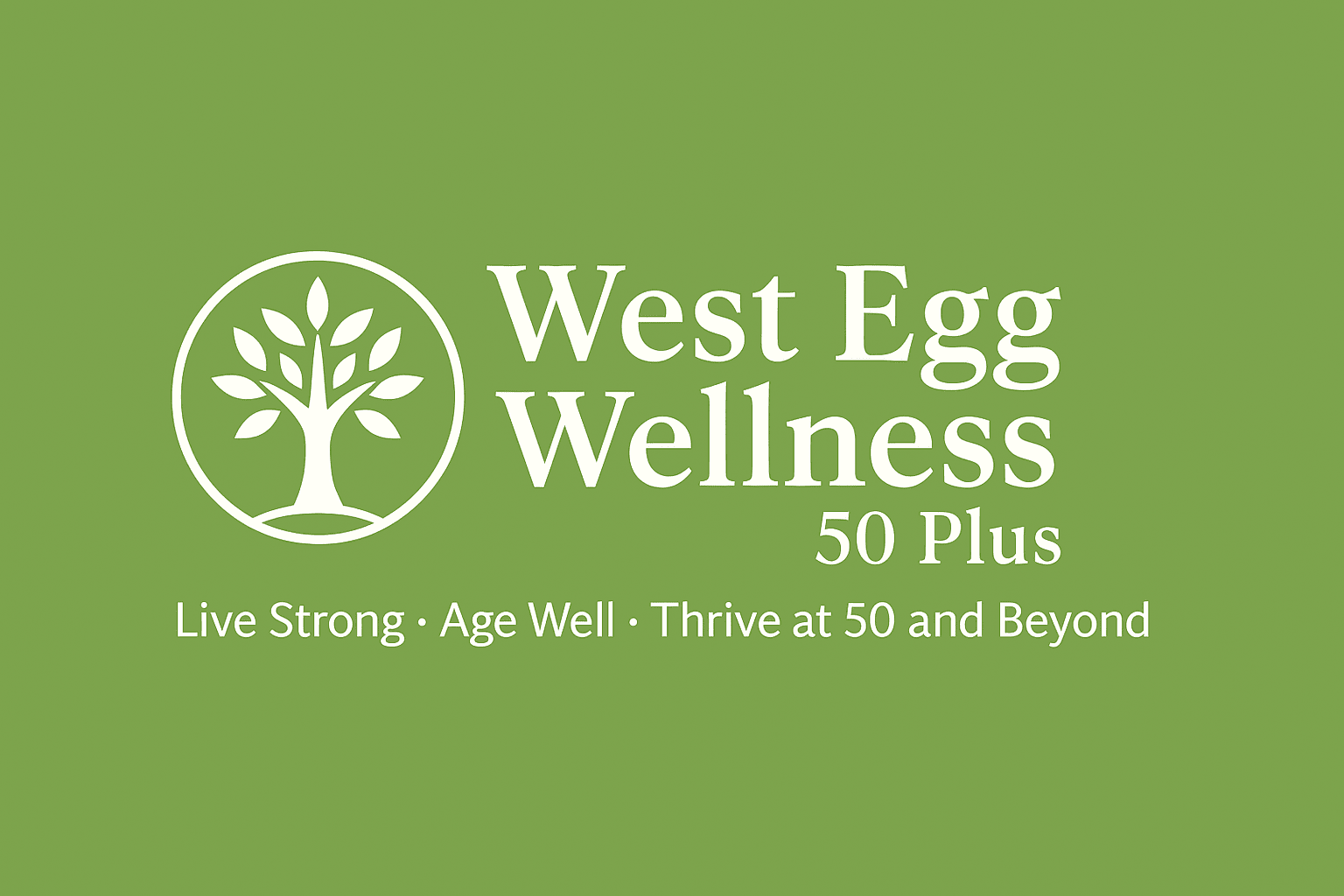
The content provided by West Egg Wellness 50 Plus is for informational purposes only and is not intended as medical advice, diagnosis, or treatment. Always consult with your healthcare provider before beginning any new health, fitness, or nutrition program. Individual results may vary. West Egg Wellness 50 Plus makes no guarantees regarding specific outcomes.
Use of this website and associated materials constitutes acceptance of our
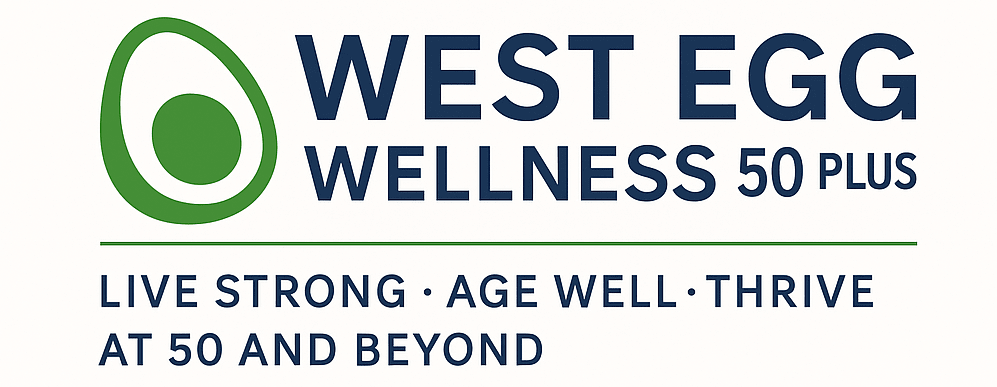
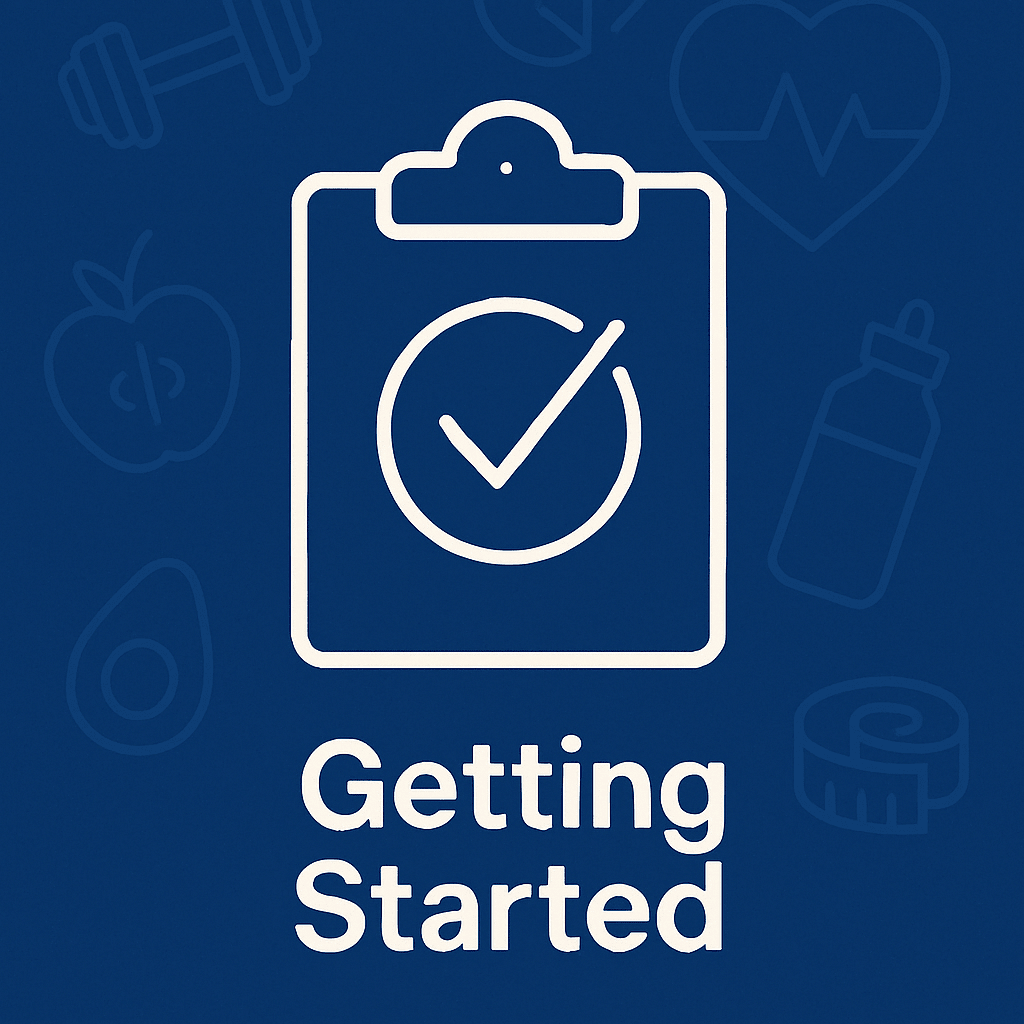
I love the video on this one.
I will try dinking water every hourr like I am trying to go 250 steps each hour.. Encouraging idea.
This is great information. I love the new layout. I cannot wait for the next edition!!!
Thanks Riaan.
Great article!